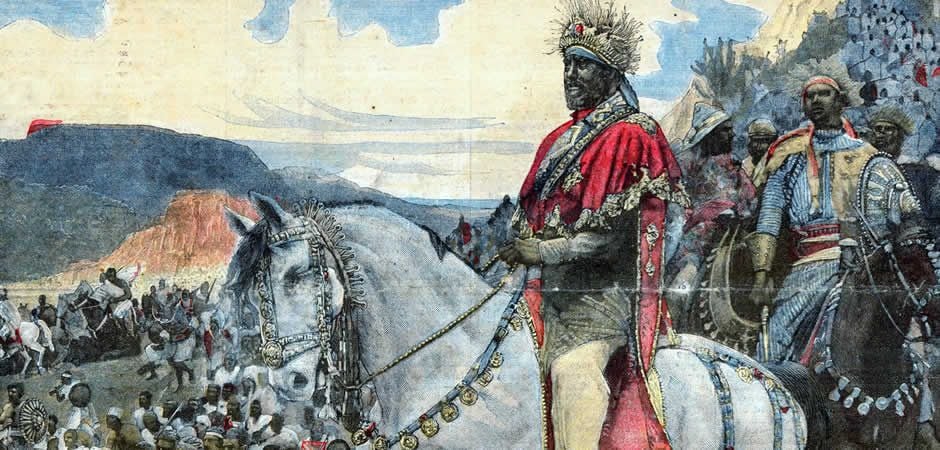 125 years ago, traditional warriors, farmers and pastoralists as well as women defeated a well-armed Italian army in the northern town of Adwa in Ethiopia.
125 years ago, traditional warriors, farmers and pastoralists as well as women defeated a well-armed Italian army in the northern town of Adwa in Ethiopia.
The outcome of this battle ensured sovereignty making it the only African country never to be colonized. Adwa turned Ethiopia into a symbol of freedom for black people globally.
Adwa potentially witnesses to what ordinary Africans can do when they unify as farmers, pastoralists, women and rural people, workers and artists. They are able to score a decisive victory against global colonialist forces.
A decade before the Battle of Adwa, European powers had decided the fate of Ethiopia. At the Berlin Conference European countries divided Africa among themselves.
Italy had a colonial possession over Assab port since 1882. At the Berlin Conference, European colonial powers agreed that Italy could take over Ethiopia as its future colony.
Italy’s expansion across Ethiopia was facilitated by the devastation caused by an infectious viral disease that killed up to 90% of the country’s livestock. Famine and disease wiped out a third of the population.
Italy took advantage of the devastation. The Italians eventually signed the Treaty of Wuchale with Menelik in May 1889. The treaty was written in Amharic and Italian. The treaty would later be the trigger for the battle of Adwa. Menelik was to discover that the language in the two versions of the treaty differed. The Italian version effectively made Ethiopia Italy’s protectorate, in contrast to the Amharic version.
Menelik had the wisdom to execute the treaty both in Italian and the Ethiopian language, Amharic. According to the Amharic version, the agreement was just a treaty of cooperation, and not a surrender of sovereignty, as stated in article 17.
As the tragic devastation eased, Menelik began preparing for war against the Italians and declared a total mobilization of war against Italy. He called upon all Ethiopians to defend their country, family and religion. He ordered every capable person to fight and those unable to pray for Ethiopia’s victory.
Ethiopians from every tribe, culture and community instantly answered Menelik’s call. Even priests carried the Tabot, a replica of the Ark of the Covenant to the battlefield.
The first showdown occurred at Amba Alagi. The Ethiopians surrounded the Italians for two weeks and, upon wife of Emperor Menelik, Empress Tayitu Bitul’s advice, cut off the fort’s water supply.
After two weeks of inactivity, the Italian General decided to advance for a surprise attack on 1st March 1896.
The 20,000 Italian and Italian-trained native troops who advanced in three columns fought bravely with their cannons and machine guns before facing a decisive defeat. Causalities were severe on both sides.
One of the key leaders of the Ethiopian forces was Empress Tayitu Bitul. A fearless strategist and brilliant administrator, she led 6,000 cavalry to the war front, and employed traditional music and war chants that motivated the fighting spirit of the warriors.
Menelik rallied his empire and fought back tooth and nail, in what has now become the most famous battle involving the defeat of a European power at the hands of an African army – though more importantly, Ethiopia is now in the history books as the only African country to successfully fight off European colonization.
Adwa turned Ethiopia into the symbol of redemption and freedom for black people. Adwa connected black people with Africa’s ancient glory and future hope, as Marcus Garvey wrote.
The green, yellow and red Ethiopian flag was adopted by several African countries after colonial liberation and a universal national anthem was created for black people.
(By: Solomon Aynishet)